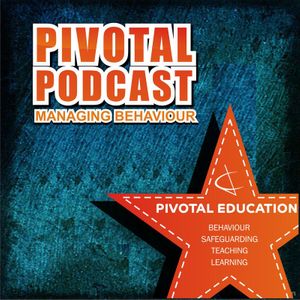Criminology, Ethnicity and the School to Prison Pipeline with Ashley Mclaren – PP212
Pivotal Podcast - Un pódcast de Pivotal Education

Categorías:
Ashley Mclaren is a criminologist who has recently completed her Master’s thesis. Tara spoke to her about unconscious bias but Ashley has also been influenced by Dr. Karen Graham who has worked on the ‘School to Prison Pipeline’. Ashley’s thesis is entitled, ‘Black and Blue – an exploration of the work and identity as a civic shield. ‘ She concentrates on the issues of black men versus the police, particularly the use of stop and search from black men’s perspective. Ashley felt there was a lot of research on the numbers of stop and search but not really any on how the black men felt about how they were being treated. There is also some very interesting work around how ethnic minorities are likely to behave when stopped by the police. However, this was US research and all hypothetical – Ashley wanted to see if it applied to the UK and also if it was borne out in reality. So she interviewed 8 black men from 18 – 40 years old. Ashley describes what she found out. How schools prepare kids for prison Ashley heard Dr. Karen Graham speak as a guest lecturer on her course. She spoke about how schools are inadvertently preparing ethnic minority and other marginalised kids for prison life. “It was interesting to see the correlation between schools and what was happening in prison life.” In the US, 50% of men in prison are black compared with 20% in the population while in the UK, the situation is actually worse – 1 in 10 prisoners are black compared with 2.8% of the population. This is alongside the fact that the highest rates of exclusion in the UK are amongst Gypsy, Romany, Traveller or Irish heritage and Black Caribbean students are more than three times more likely to be permanently excluded. Some of the themes which emerged in Ashley’s research included: * Family environment – if all you see is crime there is an increased chance you will go into that world (although some react against it of course) * Arbitrary school practices – e.g. having to do PE in silence * Experience of violence – from parents or teachers * Segregation – educational exclusions, school exclusion and physical isolation